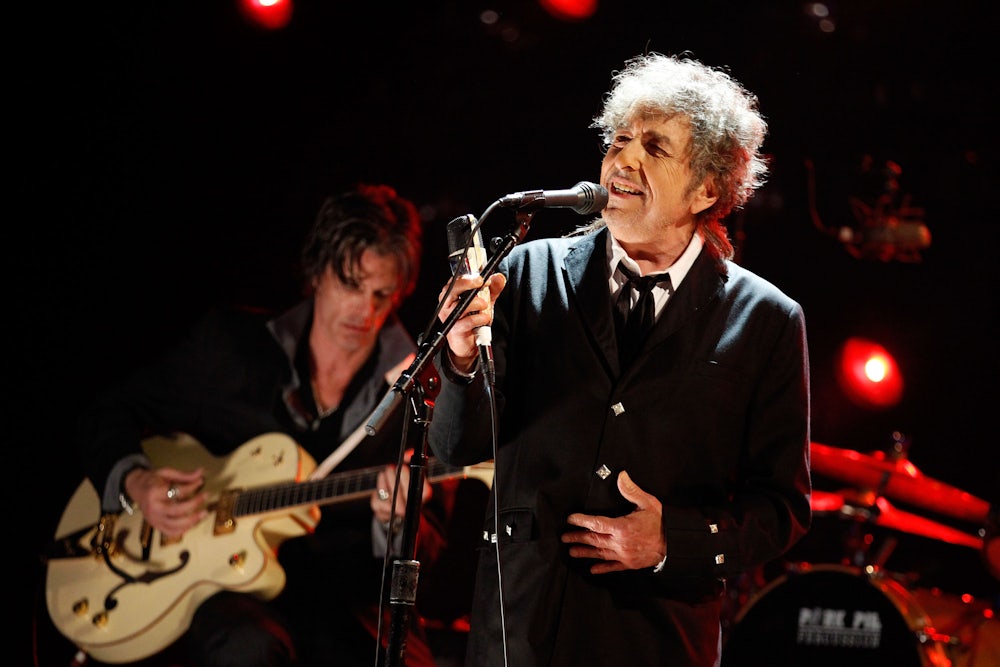When Bob Dylan won the Nobel Prize in Literature last year, there was widespread angst about whether the singer and songwriter really deserved the prize. For Dylan’s critics, his lyrics don’t stand on their own as poetry, and are only powerful when sung.
Dylan has responded to these naysayers with the release of his Nobel lecture, recorded in California. It is a splendid half-hour monologue in which he discusses not only his musical influences (he pays tribute to Buddy Holly and Leadbelly), but also those from the literary canon (which include Moby-Dick, All Quiet on the Western Front, and The Odyssey). The lecture itself is no mean literary achievement, a sprawling, headlong, Whitman-esque performance, full of sentences that threaten to spiral out of control.
“By listening to all the early folk artists and singing the songs yourself, you pick up the vernacular,” Dylan says, before launching into rambling mode:
You internalize it. You sing it in the ragtime blues, work songs, Georgia sea shanties, Appalachian ballads, and cowboy songs. You hear all the finer points, and you learn the details.
You know what it’s all about. Takin’ the pistol out and puttin’ it back in your pocket. Whippin’ your way through traffic, talkin’ in the dark. You know that Stagger Lee was a bad man and that Frankie was a good girl. You know that Washington is a bourgeois town and you’ve heard the deep-pitched voice of John the Revelator and you saw the Titanic sink in a boggy creek.
There’s one curious aspect of Dylan’s lecture. He quotes a sentence from Moby-Dick that is nowhere to be found in the book: “Some men who receive injuries are led to God, others are led to bitterness.”
Why did Dylan make up this Melville quote? It could be a mischievous wink at the accusations of plagiarism that have dogged him in the past, which Dylan has dismissed as academic nonsense. (“Wussies and pussies complain about that stuff,” he told Rolling Stone. “In folk and jazz, quotation is a rich and enriching tradition.”) But it also seems like Dylan’s antic way of merging with the literary tradition. He is not only claiming Moby-Dick as an influence, but also the right to put words in the novel, just as he has the right to rework standard folk lyrics to fit new realities.
This attempted fusion with Melville parallels an unlikely story Dylan tells early in the lecture about going to one of Buddy Holly’s last concerts and making a personal connection. “Then, out of the blue, the most uncanny thing happened,” Dylan says. “He looked me right straight dead in the eye, and he transmitted something. Something I didn’t know what. And it gave me the chills.”
Dylan’s lecture is all about the transmission of a certain heritage—both musical and literary—across time and space.
